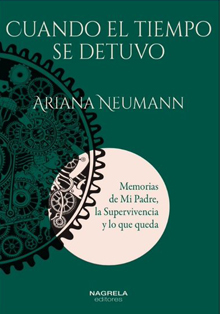Dr. Eva Perea Muñoz
Lecturer in Business and Economics at the Universitat Abat Oliba CEU
The last few days have seen an increase in tensions between the People’s Republic of China and Taiwan. Coinciding with China’s celebration of a patriotic holiday, Beijing has asserted that Taiwan is a province of China and has promised to retake it, by force if necessary. As proof of the veracity of its words, some 150 Chinese aircraft flew over the Taiwanese air defence zone for several days. The People’s Republic of China firmly believes that the island is an inherent part of its territory and must be annexed to return it to what it should never have ceased to be.
The object of desire, Taiwan, for its part, does not match this love: in response to the air strike and Xi Jinping’s words, the Taiwanese government, in another patriotic celebration, has asserted that it is a sovereign nation and will do what is necessary to defend itself. Conflict is on the cards.
The meaning of Taiwan
Spain occupies an area 13 times the size of Taiwan, which has a population of 23.6 million. In other words, it is a densely populated island that has gone from abject poverty in its early days as an independent country from China in 1949 to become one of the twenty countries in the world with the highest per capita wealth (in purchasing power parity).
Taiwan is a dynamic economy, largely driven by industrial manufacturing, which also enjoys enviable democratic stability.
It suffers from a low birth rate and other major challenges, such as a rapidly ageing population and increasing competition from China and other Asia-Pacific markets.
On the other hand, it is the most technologically advanced country in the world in the manufacture of microchips, with a 63% share of global semiconductors. Moreover, this production is concentrated in one company, TSMC: Taiwan Semiconductor Manufacturing Company, responsible for 51% of the world’s chips.
According to TSMC’s corporate website, its mission is “to be the trusted technology supplier to the global integrated circuit industry for years to come”. It wants to be the most powerful competitive force in the semiconductor industry by maintaining absolute leadership.
We all depend on semiconductors, which are indispensable for mobile phones, electronic products, and everything else that makes life as we understand it today easier. As an example, in the total cost of production of a car, in 2019 4% of the total cost of production of a car will be semiconductors. In 2030, with electric and autonomous cars, it will be 20% of the total cost.
But there is a shortage of chips that is putting the global industry in check. China desperately needs semiconductors. It wants to become the centre of the universe (which is, after all, the meaning of its name, “the kingdom of the centre”). Next to it, barely 180 kilometres away, it has the world’s supplier, which, moreover, according to them, should be part of China. It is no coincidence that tensions are now rising: China wants to annex Taiwan. Romanticism, the principle of one China? Or its hunger for semiconductors?
Or a mixture of all?
Two peoples linked past and present
China and Taiwan have very close trade ties and are each other’s main customer and supplier, as well as having been the same country until after World War II. Ties between the two peoples and economies have grown considerably. Taiwanese companies have invested some $60 billion in China, and up to a million Taiwanese now live there, some running factories.
Some Taiwanese worry that their economy is so dependent on China, but others believe that closer trade ties make Chinese military action less likely because of the cost to their own economy.
In the face of the giant’s threat, a petite, smiling, frail-looking woman stands firm. She is Taiwan’s 65-year-old president, Tsai Ing-wen. The youngest of nine siblings, she is a lawyer educated in the United States and the United Kingdom, a doctor of law and an academic. A doctor of law and an academic, can she stand up to China’s great power? Despite her gracefulness, she is confident. Single and childless, she appears in her campaigns with her adopted cats and dogs.
A March 2021 opinion poll commissioned by the Taiwanese government shows that a majority of Taiwanese now support the Tsai government’s approach to ‘safeguarding national sovereignty’. A growing number also say they feel Taiwanese, rather than Chinese.
In the 2020 election, where Tsai was re-elected, she won a record 8.2 million votes, which Beijing saw as a snub.
China’s self-interested love is unrequited. It remains to be seen whether the jilted lover will use force to win back his beloved. Let us hope not.
© All rights reserved






